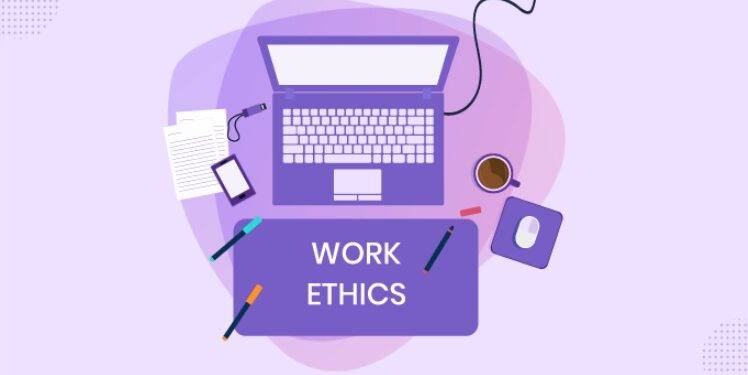When we consider ethics, we often think of a person’s moral compass, but that isn’t the whole story. Ethics are more than just values; they’re also about how people behave and interact with others. So how can you tell if someone is ethical? It takes some work, but here are some ways to assess someone’s ethics:
Look for fairness
When looking at someone’s ethics, fairness should be your primary focus. It’s important to most people, whether they realize it or not. To make life beautiful ethics is very important.
When you look at someone’s ethics, ask yourself: Is this person fair to others? Are they fair to themselves? Are they fair in their work? Are they fair to their community as a whole? A good rule of thumb is that if something doesn’t seem right about how someone treats other people, it probably isn’t ethical, either.
Ask the right questions
You can ask the right questions to assess someone’s ethics in a variety of situations.
- Ask open-ended questions: These give them a chance to explain their actions rather than simply giving you one-word answers.
- Ask follow-up questions: If they don’t answer your first question or give you enough information, ask them to elaborate on it and provide more details. This will help you understand the reasoning behind the decision they made.
- Ask relevant questions that are relevant to the situation at hand (and not just ones about moral dilemmas): By asking people about their values and beliefs, as well as how they apply these things in their lives, this will allow you to get an idea of what type of human being they are and if they would be a good fit for your team or organization.
These deep would you rather game questions may be a perfect choice for choosing some questions.
See how they react to conflict
As you interact with someone, observing how they behave when faced with conflict is important. Do they get defensive? Do they immediately start blaming others or making excuses? Or do they take responsibility and try to resolve the situation as best as possible?
In business, ethics are evident in how people handle interpersonal conflicts—and those who have high ethical standards do not shy away from confronting an issue head-on. Instead, they seek constructive solutions that benefit everyone involved (or all parties).
Here’s what you should look for:
- If another individual has wronged a person, do they assume responsibility for creating the conflict? Or do they blame others for their own mistakes?
- Does this individual often avoid difficult conversations because of fear of conflict or confrontation? Or do they have no problem speaking up when something isn’t right and needs to be addressed immediately so that progress can be made toward resolving it later on down the road
See how they treat the people around them
It is a good indication of someone’s ethics if they treat everyone they meet with respect, even if they do not consider them important people or in positions of power. If someone is consistently kind and polite to their coworkers and subordinates, you can trust that they will treat customers similarly.
See how they act when their back is against the wall
The best way to determine how someone will act in the future is by observing how they react in tough situations. Let them be put in an uncomfortable situation where their options are limited or nonexistent, and then watch what happens.
You can consider a lot about someone by seeing how they deal with change, especially in their personal life. Do they have any hobbies? How do those hobbies affect their relationships? What changes would they make if given the opportunity? Try asking these questions while having dinner together and see what happens!
Consider their history
A perfect way to assess someone’s ethics is by looking at their history. As with anything, people can change over time, but what they have done in the past can indicate what they are likely to do in the future.
For example, if someone has a history of stealing or lying, it’s reasonable to assume that this person will continue those behaviors. Similarly, if someone has been honest and trustworthy throughout their career, it follows that you could trust them now as well. Look at their character, actions, and motives before making any decisions about whether or not they are ethical people who deserve your trust.
Consider their goals
To begin, you must consider the goals of the person in question. What do they want to achieve? How will they get there? Are their plans realistic and achievable? If not, how long should you wait until giving up on them entirely?
You can also look at what they have done before. Have they been able to achieve similar things in the past? Or are they completely new to this field of work or research—and therefore more likely to make mistakes due to inexperience (and ignorance)?
Consider their environment
When assessing someone’s ethics, consider the following:
- The culture of their company.
- The industry in which they work.
- The country in which they live.
- The region where they grew up or currently live.
- Whether they are employed by a small startup or a large corporation (and, if so, what kind).
Looking at the way someone behaves can give you a good insight into their ethics
- Ask the right questions: There’s no better way to see how someone behaves than by asking them questions and watching how they respond. For example, you can ask someone to tell you about their greatest professional achievement and then listen to how they describe it. Do they describe how hard they worked? Do they brag about their skillset? Or do they focus on the impact it had on other people?
- See how someone treats others: It’s one thing for a person to talk about fairness in an abstract sense, but another when we see them in action with others—especially under pressure or during a conflict. A person who shows empathy toward others will treat people fairly even when things aren’t going well; however, if a person always puts themselves first above everyone else’s well-being, this may suggest something different (for example, selfishness).
- Consider your personal history with this person (and vice versa): The more experiences you have together—good or bad—the better idea you’ll have about what kind of ethical decisions that person would make in future situations; for example: if I trust my friend because she has been honest with me before, then I’m more likely trust her again even though she might break some rules along with me!
Conclusion
If you want to understand someone’s ethics, don’t just look at what they say or do—look at how they behave. That way, you can see their values play out in real life and draw conclusions about everything from their character to their commitment level.









